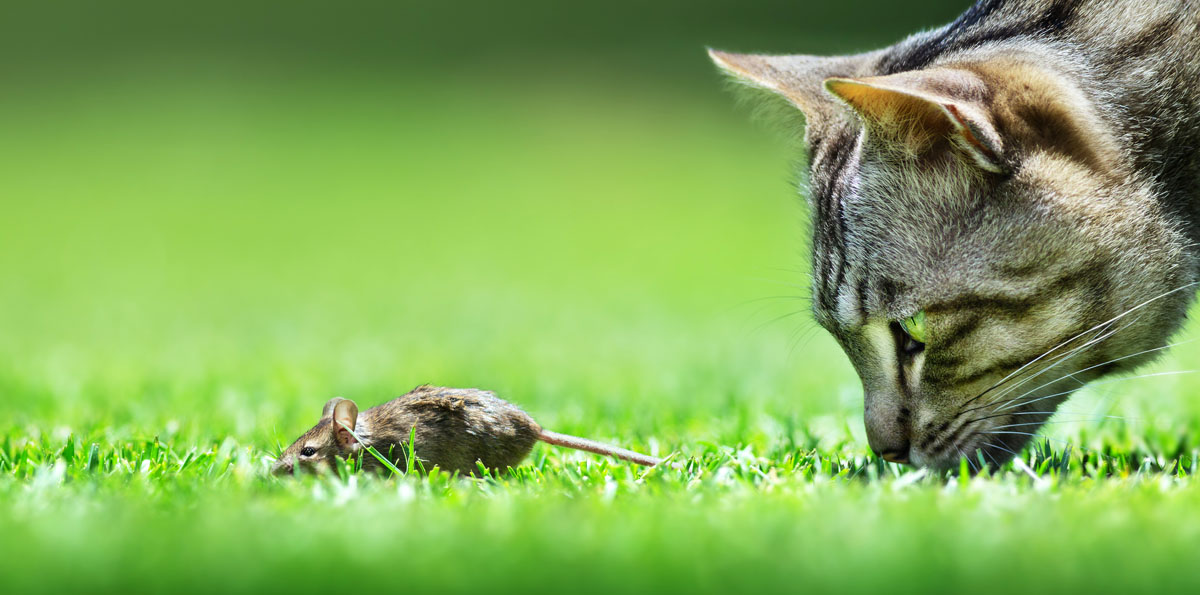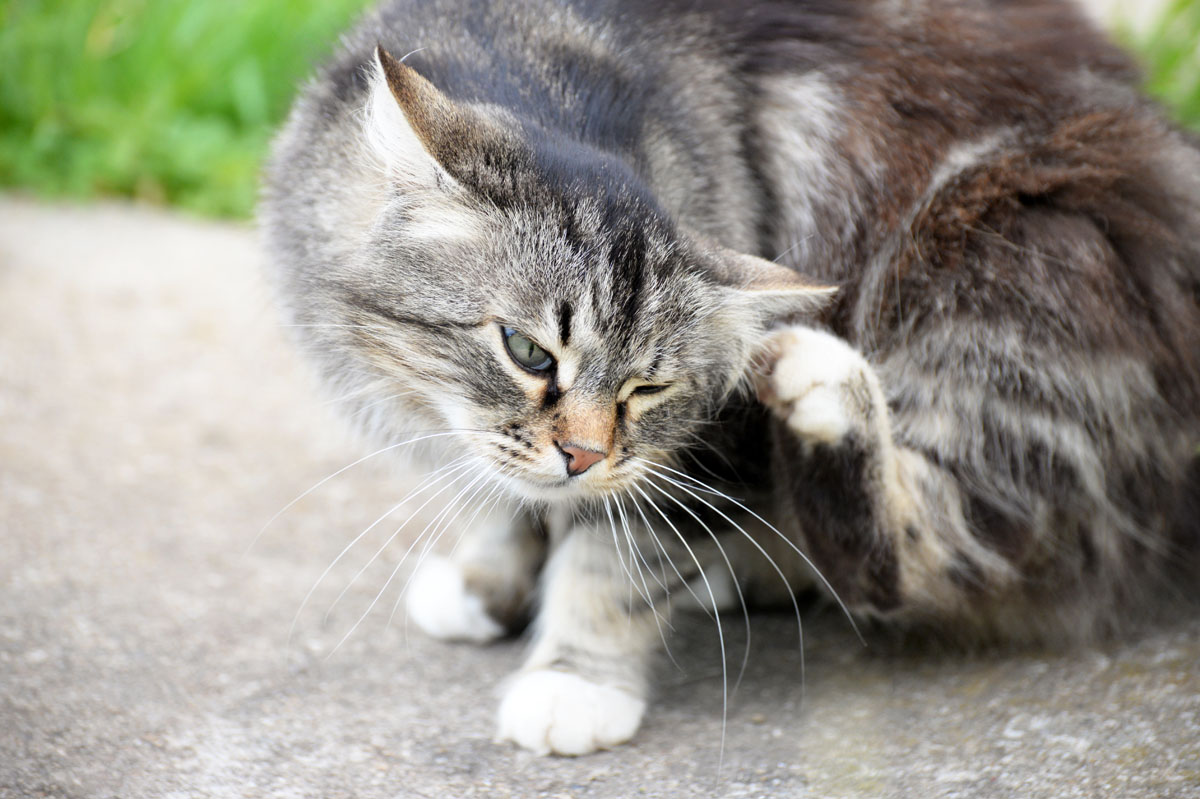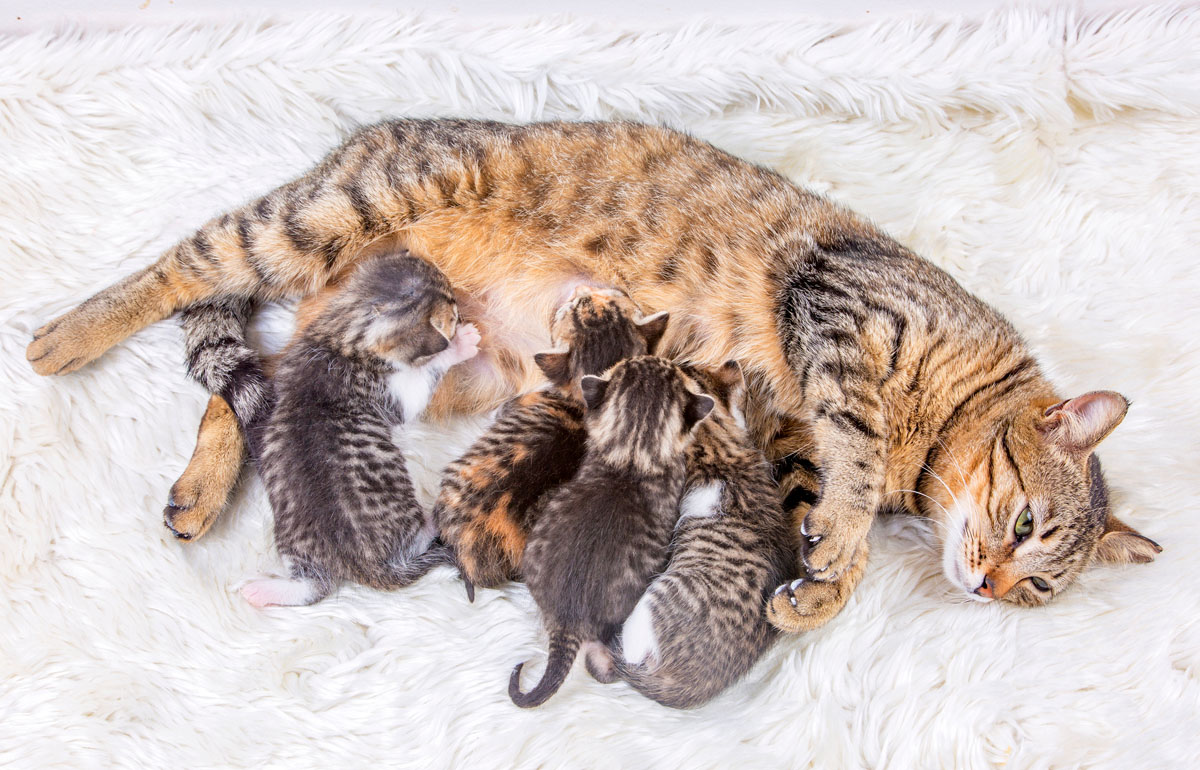Hazards Await Cats Outdoors - Page 2
 |
|
|
"Indoor cats have a much lower likelihood of becoming hurt or ill from outdoor hazards," veterinarian Jane Brunt says in the article. She explains, "Allowing cats outdoors increases their risk of being injured and exposed to infectious diseases such as the feline leukemia virus and feline immunodeficiency virus."
Keeping Felix or Fluffy indoors also helps to prevent numerous other outcomes, including unwanted kittens. The American Society for Prevention of Cruelty to Animals reports that 2.7 million unwanted cats and dogs are put down each year in the U.S. If your animal has access to romance outside—or even inside—your home, it is imperative for the good of civilization that they be humanely neutered.
Even if you only let your cat out for short intervals, it's wise to supervise. Encroachment and drought continue to push wildlife—including coyote and mountain lion—into urban excursions, even in daylight and partly in search of tasty house pets. This is especially true of homes near open spaces, including areas that rim the Eichler neighborhoods in Lucas Valley, Terra Linda, and the San Mateo Highlands, where coyote, bobcat, and even mountain lion roam.
 |
|
|
The startling images of a coyote prowling San Francisco streets during the pandemic lockdown and numerous attacks on humans last winter in the Moraga area should serve as warning enough for Bay Area pet owners.
Of course, being attacked is not the only or even the most likely threat nature poses to your cat outdoors, with ingestion of poisonous plants and infestation with parasites being somewhat more common in metropolitan areas.
The list of plants your pet should not eat is long, and filled with seemingly innocuous vegetation like ivy, aloe, and several pretty flowers. In addition to these natural toxins, pets are known to ingest man-made poisons, including pooled antifreeze in a driveway or rodents poisoned by pesticides. Also, make sure your pet does not have access to harmful chemicals it may encounter during your spring cleaning or improvement projects.
Then there is the prospect of fleas and ticks, the former in particular being the utter bane of existence for cats and their owners in warmer months, when there are more of the little buggers. Flea medication is available for both prevention and treatment, but of course made most effective by limiting pet access to outdoors. As for ticks, the key is vigilant fur inspections, which is made harder because ticks do not cause itching for cats.
If you or your pet can't bear for them to miss life outside your door, experts advise at least corralling them by night.
 |
|
|
"Whenever possible, try to get them in at night," Laguna Hills vet Bernadine Cruz says in the aforementioned webmd.com story. "Most problems, such as getting hit by a car or having a wild animal like a coyote after them—it seems most of the problems occur at night."
Wise men might argue that protecting your cat's health should take the highest priority. Novelist Jules Verne, for instance, considered cats "spirits come to earth," and philosopher Albert Schweitzer counted them (along with music) as "refuge from the misery of life."
If you agree, perhaps all you really need to know is that indoor cats have a life expectancy as much as two to three times as long as those who venture outdoors. 'Nuff said?




